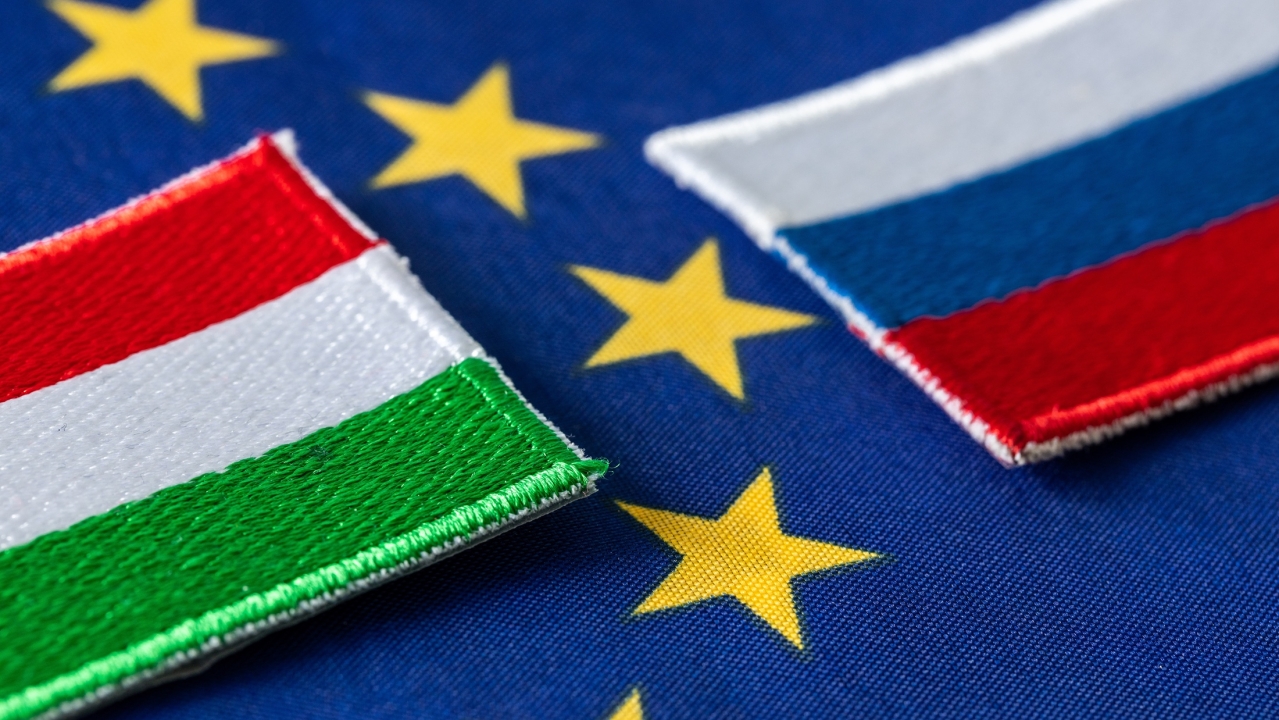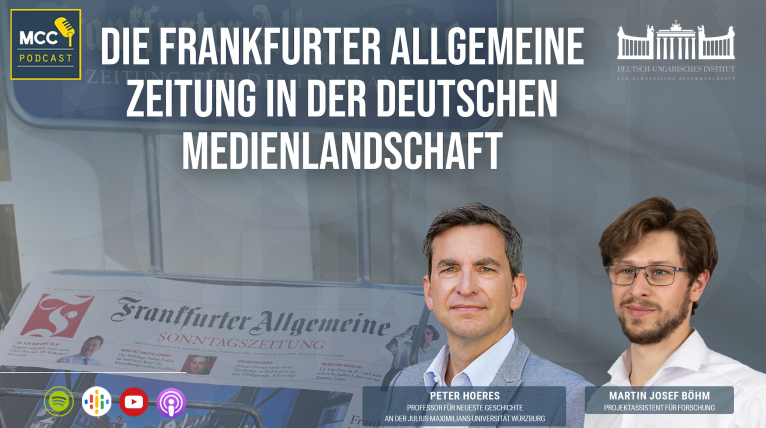In reality, it was Hungary’s socialist government(s) between 2002 and 2010 who initially launched a policy of closer cooperation. The governments of Viktor Orbán (after 2010) built on that because it made economic sense. But Russia’s war against Ukraine is changing that.
During the fall of communism, it was Orbán, then a student leader, who publicly demanded in 1989 that Russian troops should leave the country. Most anticommunist leaders of the time thought that this was too risky a thing to say. „I told him it was too early, too sensitive”, says Géza Jeszenszky, at the time the foreign policy speaker of the democracy movement „Magyar Demokrata Forum” (MDF) , which later became Hungary’s ruling party in 1990-94. But Orbán had correctly gauged the mood of the time and rose to instant fame. That speech launched his political career.
In the years that followed, political and economic relations with Russia were friendly but low-key. Hungary focused on strengthening its ties with the EU and Nato. Russia suffered intense economic and political turmoil because of the collapse of the Soviet Union. Its economic crisis in 1998 further weakened bilateral trade.
As a consequence, bilateral trade improved. The socialist government that came to power in 2002 opted for a strategy of closer relations. It made good sense: The Soviet Union had been a big market for Hungary under communism, there were still many well-connected experts around, and there was money to be made. Imports from and exports to Russia rapidly increased from 2002 and peaked in 2008. Then the financial crisis of 2009 hit both countries hard. Bilateral trade collapsed and never fully recovered.
The resumption of close economic relations from 2002 onward also translated into closer political ties. Socialist Prime Minister Péter Medgyessy travelled to Moscow soon after coming into office in 2002 . Meanwhile, within a month of him becoming Head of Government, the daily Magyar Nemzet – regarded as the mouthpiece of Fidesz, then the main opposition party – revealed that he had been a counterintelligence officer during communism. He was also accused of reporting to Soviet services, but that was never proven. Medgyessy met Putin, saying he had „come as a friend”. The two of them announced a new start in bilateral relations, centered on economic cooperation. Then Medgyessy went to see the leadership of the Russian gas company Gazprom.
That, in a nutshell, summarizes Hungarian-Russian relations ever since.
Medgessy had to resign after only two years, for reasons unrelated to his past as an intelligence officer. The next socialist Prime Minister, Ferenc Gyurcsány, elevated relations with Russia to the rank of „strategic importance” in his government programme: "Economic relations with Russia and Ukraine are of strategic importance to Hungary. We strive for the development of bilateral relations with Russia in all their aspects.”
High-level bilateral visits multiplied. There were 12 meetings on the level of Heads of Government / Heads of State or Deputy Prime Ministers between 2002 and 2009. Gyurcsány met Putin three times while Prime Minister, and even welcomed him in his private apartment in Budapest. (Additionally, he also met him in Russia after losing power in 2009). The two leaders danced together in 2007.
These friendly personal ties led to two things: Putin learned Hungarian folk dance steps from Gyurcsány, and – at least this is what some experts suspect – got Gyurcsány to let Austria’s OMV buy a 21,2 % share in the Hungarian energy company MOL, which it then passed on to Russia’s Surgutneftegaz. (The Orbán government bought MOL back in 2011).
Relations thus were cordial, but there was a major glitch during the Russian-Ukrainian gas disputes of 2005-6. Russia temporarily stopped sending gas through pipelines via Ukraine, saying Ukraine was stealing transit gas destined for Western customers. Gas deliveries to Hungary consequently dropped by 40%. The socialist government realised there was a problem and decided to expand gas storage capacities – but that needed money. In the end, it was decided to build new storage facilities in partnership with Russia’s Gazprom.
What Orbán did when he came to power in 2010 was to add a catchy narrative to the already considerable degree of economic cooperation, and embed it within a grander geopolitical strategy: An „Eastern Opening” was to improve relations with not only Russia, but China, Turkey and other Asian countries.
The term itself, and the strategic concept, sounded similar to Turkey’s „Eastern opening” from 2009 onwards. „This is really more an opening to the world”, Turkey’s then foreign minister Ahment Davutoglu told me in an interview in 2011 , and aimed to „normalize” the country’s international relations just like Western countries had been doing all along.
Hungary’s „Estern Opening” from 2011 onwards followed the same spirit. Orbán announced a foreign policy aimed at a „balance” in relations with all relevant „big” or at least „regional” powers. Hungary would give something (but never everything) that mattered to Russia, the US, China, Germany and Turkey, and thus „make them interested in seeing a successful Hungary”. To the US, Hungary would give military cooperation and participation in military missions abroad. To Germany, generous industrial cooperation. To Russia, Orbán gave two things: A stage within the EU, by receiving Putin in Budapest on a regular basis. Andz, in 2014, a contract with Russia’s nuclear energy company Rosatom to expand and modernize Hungary’s only, Russian-built nuclear power plant in Paks.
The agreement met with fierce criticism from Hungary’s opposition parties, because the contract was awarded without a tender, and contract details were declared a state secret for thirty years. This debate calmed down somewhat after the EU declared the project to be in line with EU regulations in 2017. Most experts agreed that the nuclear plant needed to be modernized and expanded. Hungary imported around 30 % of its electricity. Paks provided half of all domestic electricity production, and without an upgrade it would have had to go offline by 2037 . The modernized Paks II would produce enough electricity to cover all household consumption over a much longer lifetime. Without that, Hungary would have had to import not 31 % but 80 % of its electricity after 2037.
This was also clear to the previous, socialist governments between 2002 and 2010. Beginning in 2006 there were discussions about expanding Paks’ lifetime and enlarging it with new reactors. Hungary’s electricity company MVM signed a cooperation agreement exploring options with two Russian companies. In 2009, parliament passed an amendment to the law regarding nuclear energy, and authorized preparatory studies for an eventual enlargement of the nuclear plant. Now comes the confusing part: Such an amendment was not legally required for preparatory work. Only for a decision to actually enlarge Paks. The text of this theoretically unnecessary amendment incomprehensibly referred to a paragraph in the law explicitly dealing with an eventual enlargement. But the amendment itself did not mention any decision to expand Paks.
One way to read these bizarre developements was that the socialist government had tricked parliament into - unwittingly – approving an extension to the existing facilities. Ferenc Gyurcsány, the Prime Minister at the time, later denied that there was any such scheme, in a remarkable interview in 2015 (at the price of sounding utterly clueless as to what his government had been doing). In any case, Gyurcsány’s amendment became the legal foundation for Orbán’s deal with Putin in 2014.
In the 1960s, when Paks was built, the original plan had been to create a much bigger nuclear plant, with a total capacity of 6000 MWH. Only a capacity of 2000 MWH was ever built, however. Ever since, even under communism in the 1980s, plans were drawn up time and again to build more reactor blocks. After the fall of communism, Western and Chinese competitors for such projects appeared.
So why did Rozatom get the deal? One answer is that the existing nuclear plant was Russian-built anyway. Hungarian experts knew how to work with it. Many had been trained in Russia and spoke Russian. But why no tender? Pál Kovács, the state secretary responsible for „capacity conservation” at Paks, has been quoted as saying that competiton from France, the USA and China would have drawn in the governments of those countries, and that that could have led to complications that might have made any decision impossible.
There were some differences though. Gyurcsány, and before him Medgyessy, had warmly and publicly embraced Putin as a „friend”, whereas Orbán said: „One can’t be friends with Putin” - meaning that Putin always acts as the leader of Russia, never as a private person. Nevertheless, it was Orbán who got branded as „Putins best friend” in the media.
There are three main reasons for that. First, although his Russia strategy did not differ substantially from that of the socialists, he did add a strong political narrative („Eastern Opening”), which was an easy target for his critics („we should belong to the West”). Second, his overtures to Russia came at an unfortunate historical time – in 2014, when pro-Russian forces first started a war against Ukraine. It made him look as if he was siding with Putin when everyone else condemned him. Thirdly, the media were eager to reinforce that perception – unlike their treatment of Gyurcsány, who had followed more or less similar policies, and also had been harshly criticized for being „pro-Putin” by the then opposition, among others, Orbán himself. But that, at the time, for some reason, wasn’t an attractive story for Western media. Comparing Orbán to Putin was. One explanation for this may be friendly ties between Western media and leftwing Hungarian politicians – the media are more willing to echo narratives of Hungary’s political left than narratives offered by Fidesz.
Be that as it may, in actual fact Russian-Hungarian trade never again attained the peak it reached under Gyurcsány in 2008. The „Great Recession” of 2009 crippled both countries’ economies. By the time they got back on their feet, EU sanctions against Russia, as a consequence of the first Ukraine war in 2014, limited trade. Then came the second Ukraine war in 2022, and more sanctions. Hungary opposed many of them, arguing they did little to weaken Russia and much to weaken the EU economies. But it did implement them.
Russia remained important, even now. In Orbán’s mind, as he stated in an interview with a conservative weekly in March 2022, the war would one day be over, but „Russia will still exist”. He argued that whatever the outcome of the war, Hungary would still have „interests”, and that there was no reason to stop „energy cooperation” with Russia, meaning that Hungary would still be needing Russian gas, oil and cooperation to expand the nuclear plant at Paks.
But as the war dragged on, Orbán realized he needed a new approach. A month after his Mandiner interview, in a press conference on 6 April, he noted that Hungary had built balanced and „correct” relations with Russia since 2010, but that the war had changed everything. Although Hungary was trying to preserve as much of it as possible, the structure of its relationship with Russia was crumbling and „maybe there will be nothing left”. „I don’t yet know how profound this change will be”, he said. „Some speak of a new iron curtain, others of damages that can be repaired. I can’t judge how it will be. The decision is not in our hands, but something new is beginning. When I see the outlines of that emerge (…) then we will work out a new policy towards Russia.”
Three and a half months later, he announced a first deep strategic shift. In a speech in the Transylvanian town of Baile Tusnad (Hungarian: Tusnádfürdö) on 23 July 2022, he said the world had entered a new era of conclicts and crises in which the West was crippled by a lack of energy sources. Consequently, for Hungary, the aim had to be to come off gas and switch to domestic energy sources. „We have to come off gas, electricity is much less of a burden for Hungary, because we have a nuclear plant, and we have solar energy.”
That sentence announced a fundamental shift of strategy for Hungary, whose economy had relied on cheap Russian gas ever since communist times. A short time later, the government announced that it would reduce subsidies for household gas and electricity. Subsidies would remain, but beyond a basic level of consumption, households would have to pay something more closely resembling world market prices.
The essential detail was that electricity prices would „only” double, but gas prices would increase sevenfold. The strategic aim behind this was clear: People would try to save gas. Households and companies would invest to equip their homes and enterprises with other forms of energy instead. The government also decided to increase domestic gas production by 25%, to rely more on coal, and even increase to the production of firewood.
So this was the immediate effect of the war on Hungary’s Russia strategy: Short-term, buy more gas if possible in 2022 . But in the longer term, the aim was now to „come off gas” (not just Russian gas, any gas that needed be imported), while speeding up the expansion of the Paks nuclear plant with Russian help. Acess to Russian oil would remain a strategic interest for Hungary, although in August, Hungary also importing chemically compatible for its only refinery at Szászhalombatta. Plans were made to retool that refinery in order to be able to refine other (non-Russian) types of oil there. On September 30th, the deputy director in charge of strategy for Hungary’s oil company MOL, György Bacsa, said this would take two years and cost 500 million Euro. As for the rest, trade relations would need to be „rethought”, as the war and the sanctions regime had „narrowed” potential for growth in trade relations.
In other words, the „Eastern Opening”, as far as relations with Russia were concerned, had ceased to be a political priority. It was replaced with strategy of damage control (keep as much access and good relations with Russia as possible), a new focus on domestic energy production to replace Russian imports, and „strategic patience” (no rushed decisions, wait and see where Russia stands in ten or twenty years). Circumstances have changed, but Hungary’s approach to Russia even now remains centered on pragmatic economic considerations. Ever since the end of communism, that has always been the case.
Critics claim that Orbáns relationship with Putin is more than simply economic consideration. For instance, while 24 Nato countries expelled 400 Russian diplomats since the beginning o the war in Ukraine, Hungary has not expelled any. In 2019, Hungary let the Russian-dominated, Soviet-era „International Investment Bank” (IIB) move its headquarters from Moscow to Budapest, and agreed to give diplomatic immunity to its employees (widely regarded to be connected with Russia’s intelligence services). And when most states with a stake in that bank announced they would leave it as a consequence of Russia’s invasion of Ukraine, Orbán said Hungary would stay, and so would the bank. How can that be explained, critics ask, other than by a Putin-Orbán relationship that is deeper than economc logic would demand?
The answer may be that Orbán regards political gestures as a cheap way to reap economic benefits. It doesn’t cost anything, for example, to publicly support Turkey’s bid to become an EU member and praise its President Recep Tayyip Erdogan as a great statesman. But it pleases Erdogan, and that can bring benefits in trade relations. „We give the Sultan the respect he needs”, one key Orbán aide told me back in 2017. „But that doesn’t mean we believe that Turkey is well-governed.” There was even a plan to let Turkey build a huge mosque in Budapest. That didn’t mean Orbán had any feelings for Turkey or for Islam. When the migrant crisis changed the political landscape in 2015, the plan was ditched.
As regards the IIB, it did bring some, although not very substantial, economic benefits. As for the danger of it becoming a base for Russian spies, the same has been said of Orbán’s plan to bring a campus of China’s Fudan University to Budapest. Security expert István Gyarmati has commented that this should be the least of one’s worries: „To the extent that the University might allow Chinese intelligence to become more active, that’s what counterintelligence services are for – let them do their jobs and ward off the threat.” The same argument can be made regarding the IIB.
Another argument critic use against Orbáns readiness to work with „autocratic” governments, as in Russia or China, is that he simply prefers autocrats over democrats. Because he himself has autocratic instincts. It’s true that Orbán may value the fact that coming to a deal with such countries, „per handshake” between leaders, is easier than obtaining results with countries where complex and competing institutions need to be involved before a deal can be reached.
But essentially, this is a baseless argument.
The difference to, say, Germany or Asutria is that they will quietly do lucrative business with China and Russia, but publicly pretend to care about Human Rights and „democratic values”. Orbán won’t. He’ll always be quite open about dealing with anyone, and never try to publicly tell any government how to behave.










